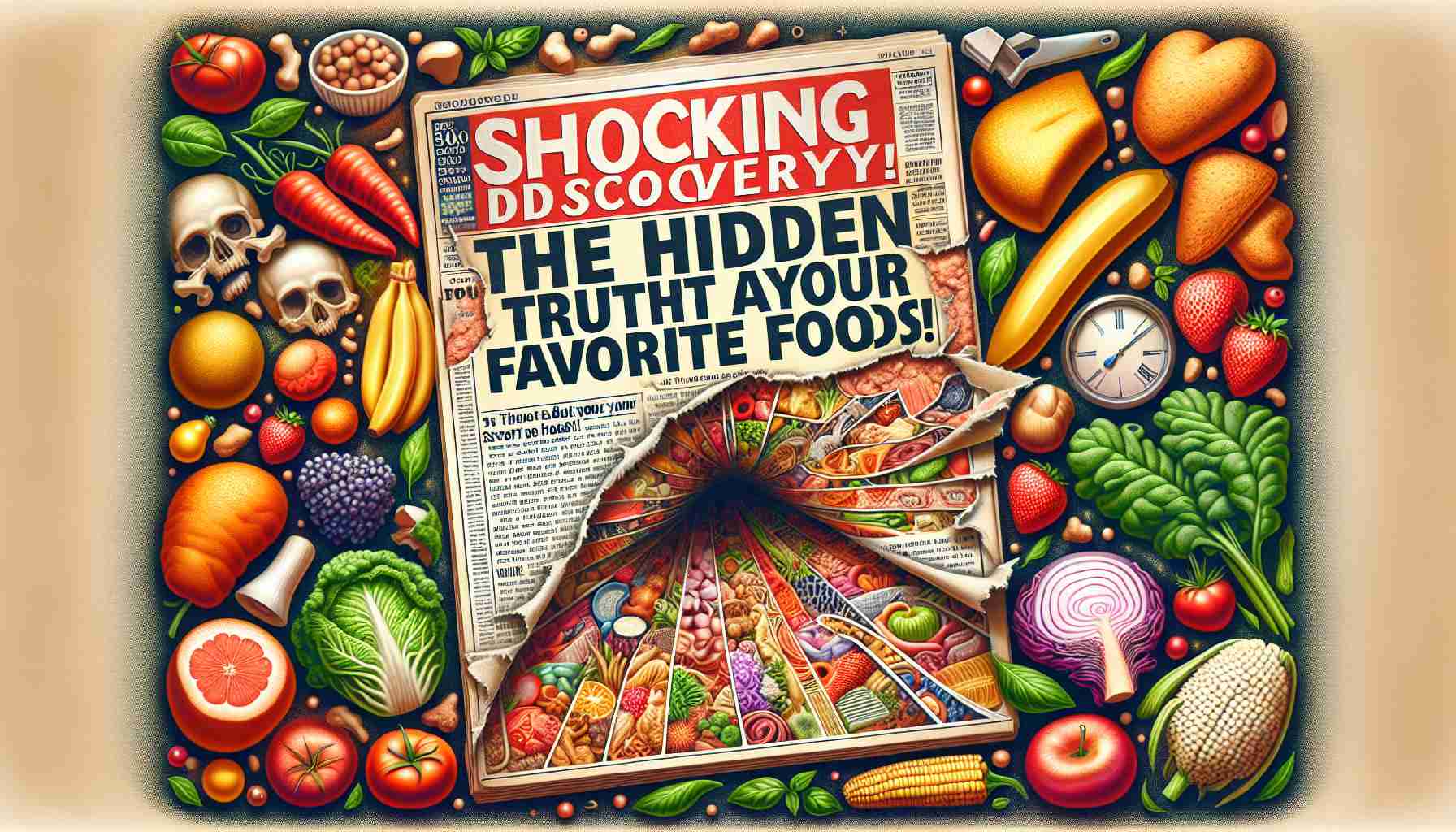
Unlocking the Secrets Behind Our Diet Choices
A recent investigation has revealed startling information regarding the ingredients in popular food items. This study highlights how various everyday products may contain surprising additives that consumers are largely unaware of. Specifically, researchers dived into the world of processed foods, unveiling the presence of artificial components that mimic natural flavors.
The findings indicate that many familiar snacks and meals are laced with these synthetic enhancers. These ingredients, often hidden under vague labels, can pose health risks and alter taste perceptions dramatically. As people become more health-conscious, awareness about what goes into food is becoming increasingly important.
Furthermore, the analysis includes a comprehensive look at how labeling can mislead consumers. Items marketed as “natural” may indeed harbor a cocktail of chemicals designed to boost flavor or shelf life. Investigators urge shoppers to read labels meticulously and to be mindful of the true contents of what they are consuming.
The implications of these revelations could shift eating habits significantly as individuals seek transparency in their dietary choices. As demand for organic and truly natural products rises, food manufacturers may need to adjust their practices to align with the growing market of informed consumers. This ongoing conversation around food integrity is likely to shape how we eat in the future.
Revolutionize Your Health: The Truth About Food Additives Revealed!
Understanding Food Additives and Their Impact
In recent years, there has been a spotlight on the hidden ingredients in processed foods, challenging consumers to reconsider their dietary choices. A comprehensive study has unveiled the prevalence of artificial additives in everyday snacks and meals, raising concerns about health risks tied to these synthetic components.
What Are Food Additives?
Food additives are substances added to food products to preserve flavor, enhance taste, or improve appearance. These can include artificial flavorings, colorings, and preservatives that serve to enhance the shelf life and palatability of food items. Despite their widespread use, consumers are often left in the dark regarding their potential health implications.
Pros and Cons of Food Additives
Pros:
– Increased Shelf Life: Many additives prevent spoilage, ensuring that products remain safe to consume longer.
– Enhanced Flavor: Artificial flavoring can make food items more appealing, driving consumer satisfaction.
– Cost-Effective: Using additives can lower production costs and retail prices.
Cons:
– Health Risks: Some additives have been linked to health concerns including allergic reactions, hyperactivity in children, and potential long-term health effects.
– Misleading Labels: Foods labeled as “natural” may still contain these synthetic ingredients, misleading health-conscious consumers.
– Altered Taste Perception: Reliance on artificial flavors may disconnect consumers from the true flavors of natural ingredients.
Consumer Awareness and Label Reading
As consumers become more health-conscious, the importance of comprehensively reading labels cannot be overstated. It’s essential to look for specific terms and ingredients that might be obscured under generic labels. Knowledge of additives like monosodium glutamate (MSG), artificial colors, and flavor enhancers can empower consumers to make informed dietary choices.
Trends Towards Organic and Natural Products
In response to mounting consumer awareness, the market for organic and truly natural products is witnessing significant growth. This trend indicates that consumers are increasingly demanding transparency and integrity in their food sources. Food companies are adapting by either reformulating products to eliminate questionable additives or improving labeling practices to build trust with their customer base.
Insights Into Future Dietary Choices
The implications of these findings are likely to lead to a fundamental shift in eating habits over the coming years. As transparency becomes a key concern for consumers, manufacturers will need to reevaluate their ingredient sourcing and production processes. Innovations in food technology, including natural preservatives and flavor enhancers, are likely to become more mainstream.
Tips for Making Informed Food Choices
1. Read Ingredient Labels Carefully: Familiarize yourself with commonly used additives and their effects.
2. Choose Whole Foods: Opt for fresh fruits, vegetables, and unprocessed items wherever possible.
3. Research Brands: Investigate brands that prioritize transparency and quality in their ingredient sourcing.
4. Stay Updated: Keep abreast of studies and reports concerning food safety and additive regulations.
Conclusion: Shaping Our Eating Futures
The ongoing dialogue around food integrity will undoubtedly steer the future of dietary choices. As consumers continue to prioritize health and transparency, food manufacturers face a crucial choice: adapt to the demand for cleaner labels and healthier products or risk losing market share to competitors who will.
For more insights on food health and nutrition, visit Healthline.



